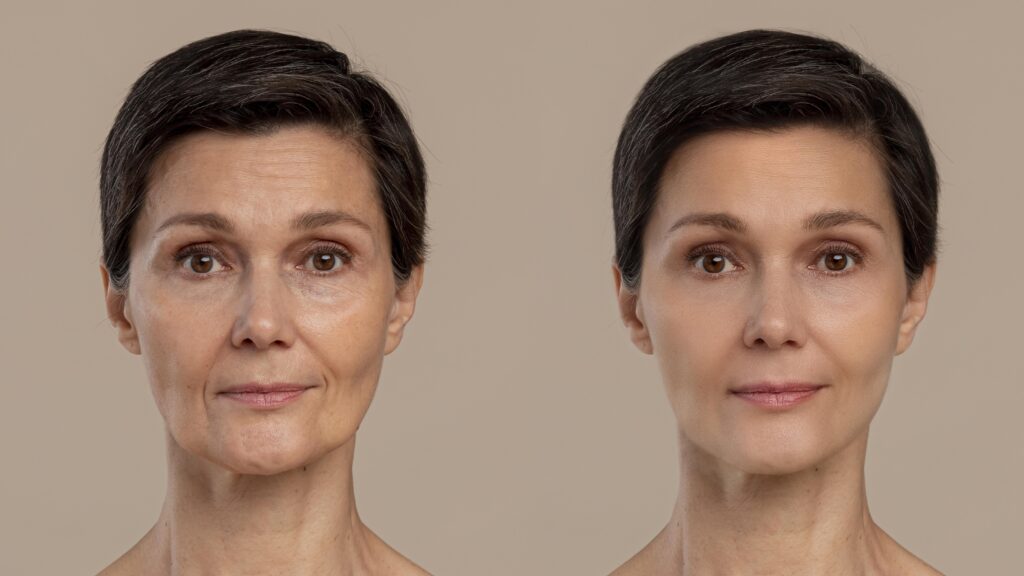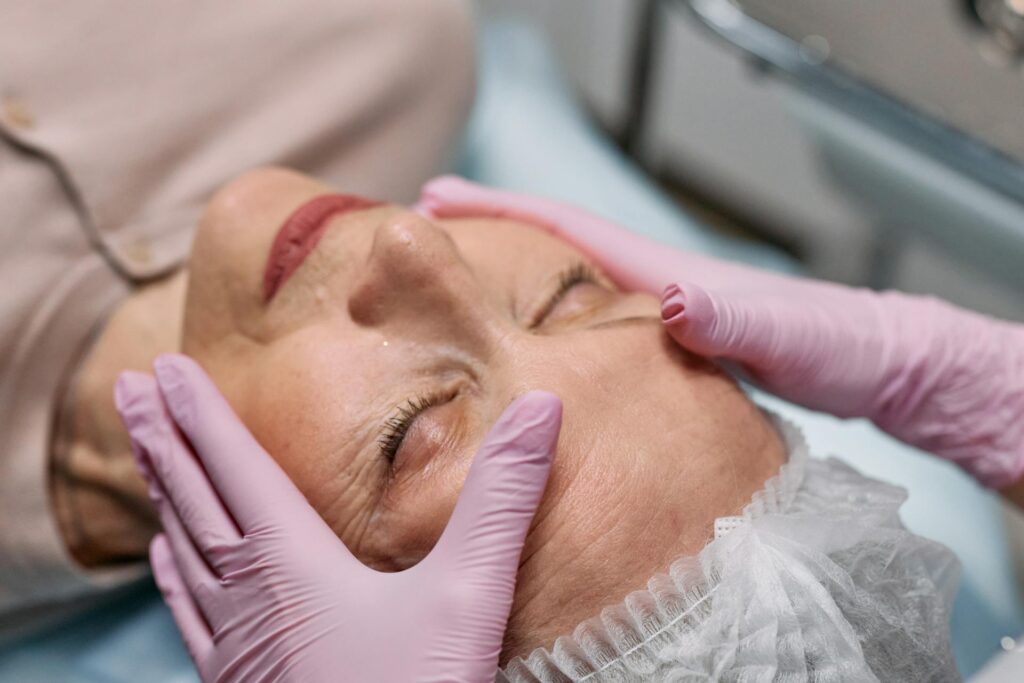
Looking in the mirror and noticing a new wrinkle or two? It’s a natural part of life, but that doesn’t mean you have to accept it! There are many ways to keep your skin looking youthful and radiant, and some fantastic options avoid harsh preservatives often found in anti-aging products.
This article explores 10 of the best preservative-free anti-aging treatments that can help you achieve younger-looking skin, all without relying on potentially irritating chemicals. We’ll also discuss some lifestyle habits that can significantly benefit your skin’s health.
Why Choose Preservative-Free Anti-Aging Treatments?
Preservatives are added to skincare products to extend their shelf life and prevent them from spoiling. However, some people prefer to avoid them for various reasons:
- Potential for irritation: Certain preservatives can irritate sensitive skin, causing redness, dryness, or even allergic reactions.
- Concerns about safety: While generally safe, some people have concerns about the long-term effects of certain preservatives.
- Natural approach: Many people prefer a more natural approach to skincare and avoid products with any unnecessary ingredients.
Also Read: The Secret Weapon for Glowing Skin: 10 Best Products to Support Your Skin Microbiome
10 Best Preservative-Free Anti-Aging Solutions
Now that we understand the benefits of preservative-free options, let’s dive into some amazing natural ingredients and treatments that can help you achieve a youthful glow:
Hyaluronic Acid Serum:
This powerhouse ingredient is a natural humectant, meaning it attracts and holds moisture in the skin, plumping it up and reducing the appearance of wrinkles. Look for serums with pure, high-quality hyaluronic acid [Hyaluronic Acid: https://www.mayoclinic.org/drugs-supplements/hyaluronic-acid-injection-route/proper-use/drg-20074557?p=1]
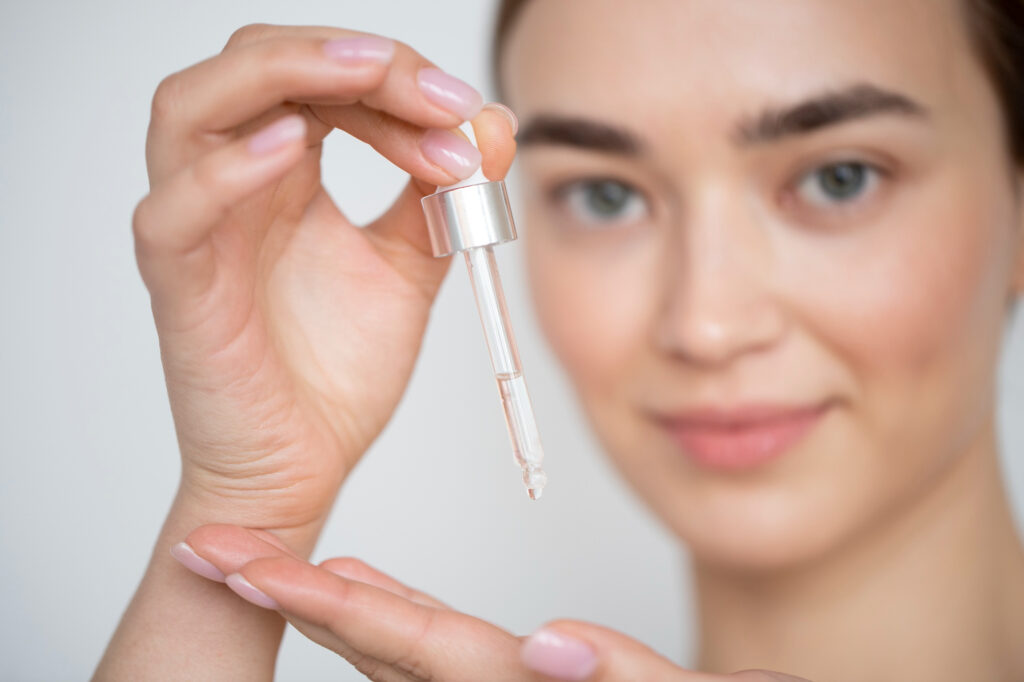

Vitamin C Serum:
This antioxidant superstar fights free radical damage, which can contribute to wrinkles and age spots. Vitamin C also helps stimulate collagen production, a protein that keeps your skin firm and elastic [Vitamin C Serum for Face: Benefits and Uses: https://www.healthline.com/health/beauty-skin-care/vitamin-c-serum-benefits].
Also Read: The Best Anti-Aging Skincare Routine: Fight Wrinkles and Look Younger Naturally!
Retinol Cream:
A derivative of vitamin A, retinol is a proven anti-aging powerhouse. It helps stimulate collagen production, reduce wrinkles, and improve skin texture. However, retinol can be irritating for some people, so start with a low concentration and gradually increase use [Retinol: https://my.clevelandclinic.org/health/treatments/23293-retinol].
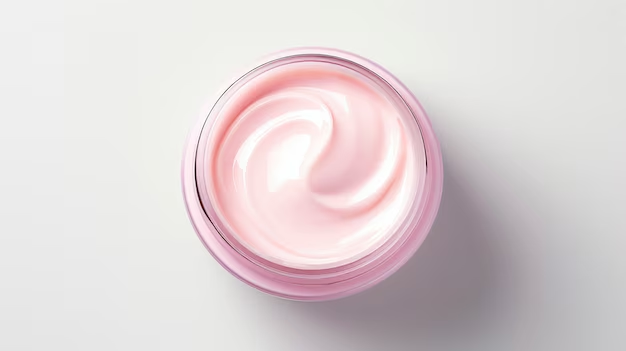
Rosehip Oil:
This natural oil is rich in vitamins A and C, which are essential for healthy skin. Rosehip oil can help reduce wrinkles, scars, and hyperpigmentation (dark spots) [Rosehip Oil for Skin Care: Uses and Benefits: https://www.healthline.com/health/rosehip-oil-benefits].
Green Tea Extract:
Packed with antioxidants, green tea extract helps fight free radicals and protect your skin from sun damage. It can also soothe irritation and improve skin tone [Green Tea for Skin: Benefits and Uses: https://www.healthline.com/health/video/top-5-evidence-based-health-benefits-of-green-tea].
Coenzyme Q10 (CoQ10) Cream:
This antioxidant naturally occurs in your skin, but levels decrease with age. CoQ10 creams may help reduce wrinkles and improve skin firmness [Coenzyme Q10 (CoQ10): Uses, Side Effects, Interactions and More: https://reference.medscape.com/drug/coq10-ibedenone-coenzyme-q10-344482].
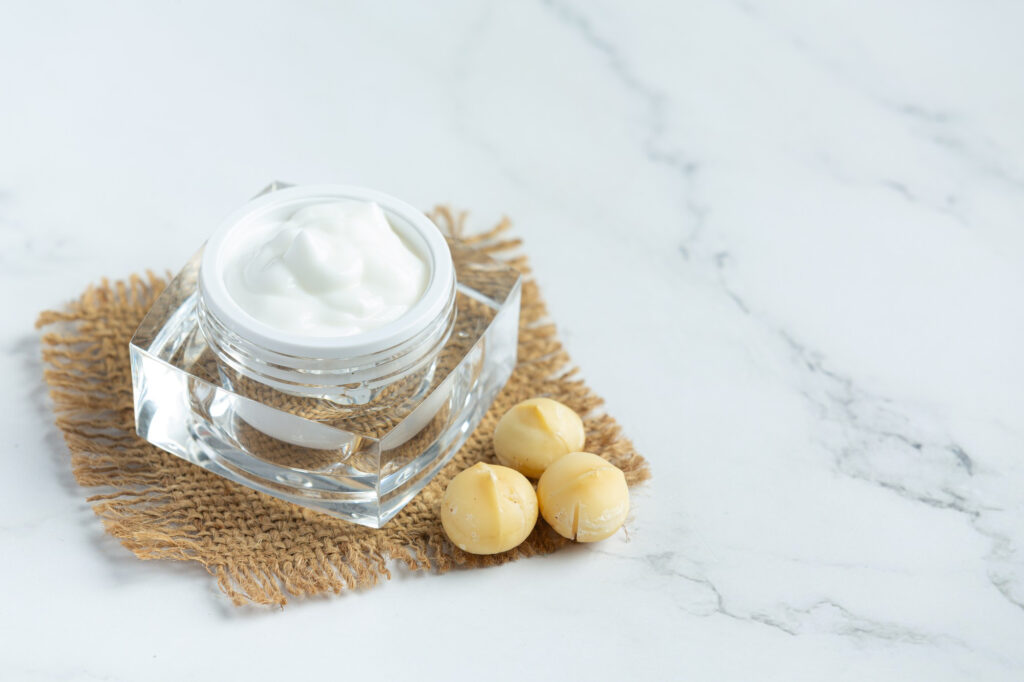

Facial Massage:
This relaxing practice can help improve circulation, promote lymphatic drainage, and reduce puffiness. It can also help stimulate collagen production for a more youthful appearance [Facial Massage Benefits: Does It Really Work?: https://www.healthline.com/health/beauty-skin-care/facial-massage-benefits].
Microneedling:
This non-surgical treatment involves using tiny needles to create micro-injuries in the skin. This triggers your body’s natural healing response, which can help stimulate collagen production and reduce wrinkles. Consult a dermatologist before trying microneedling at home [Microneedling for Skin Care: Benefits and Risks: https://www.healthline.com/health/microneedling].
Light Therapy:
LED light therapy uses different wavelengths of light to target specific skin concerns. Red light therapy can help stimulate collagen production, while blue light therapy can help fight acne-causing bacteria [Light Therapy for Skin: Types, Uses, and Side Effects: https://my.clevelandclinic.org/health/treatments/22146-led-light-therapy].
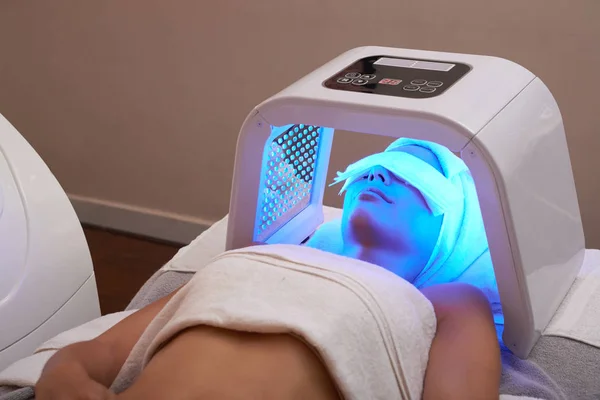

Sleep Masks:
While not technically a treatment, sleep masks can be a great way to prevent wrinkles. When you sleep on your side or stomach, your face can press against your pillow, leading to wrinkles over time. Sleep masks can help prevent this by keeping your face off the pillow [Can Sleeping on Your Back Prevent Wrinkles: https://www.healthline.com/health/sleep/sleeping-on-your-back-may-help-you-get-the-rest-you-need
Where to Find Preservative-Free Anti-Aging Products?
Looking for ready-made preservative-free anti-aging products? Here are a few tips:
- Look for brands that specialize in natural and organic skincare: These brands are more likely to use natural ingredients and avoid preservatives.
- Read product labels carefully: Look for products that are labeled “preservative-free” or “natural.” Be wary of products with long lists of complex-sounding chemicals.
- Shop at health food stores or online retailers specializing in natural skincare products: These stores will have a wider selection of preservative-free options.
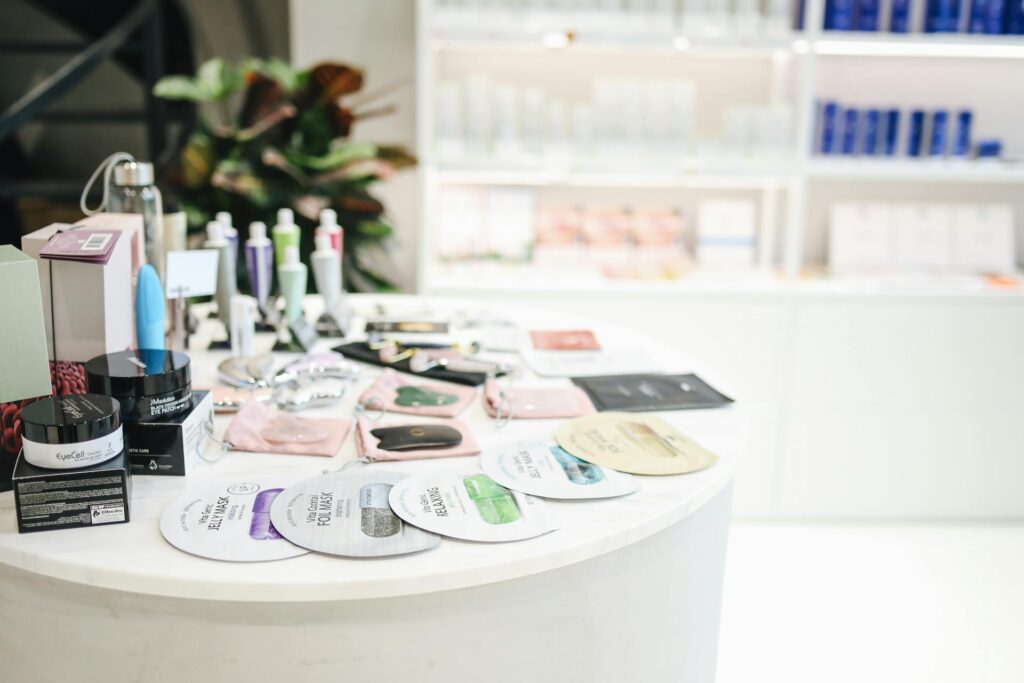

Remember:
- Patch test any new product: Before applying a new product to your entire face, do a patch test on a small area of your skin, like the inner bend of your elbow. Wait 24 hours to see if you experience any irritation.
- Consistency is key: For best results, use your chosen anti-aging routine consistently.
- Consult a dermatologist: If you have any concerns about your skin or want personalized recommendations, consult with a dermatologist. They can assess your individual needs and recommend the best course of action for achieving healthy, youthful skin.
Also Read: Does Microdermabrasion Work For Stretch Marks? A Comprehensive Guide
Lifestyle Habits for Younger-Looking Skin
Taking care of your skin goes beyond just what you put on it. Here are some lifestyle habits that can significantly benefit your skin’s health and promote a more youthful appearance:
- Drink plenty of water: Aim for eight glasses of water daily to keep your skin hydrated from the inside out.
- Eat a healthy diet: Fruits, vegetables, and whole grains provide your body with the nutrients it needs for healthy skin. Limit processed foods, sugary drinks, and excessive dairy, as these can contribute to skin problems.
- Get enough sleep: When you’re well-rested, it shows on your face! Aim for 7-8 hours of sleep per night.
- Manage stress: Stress can wreak havoc on your skin, triggering breakouts and accelerating the aging process. Find healthy ways to manage stress, such as yoga, meditation, or spending time in nature.
- Limit sun exposure: Excessive sun exposure is a major contributor to wrinkles and premature aging. Wear sunscreen with SPF 30 or higher every day, even on cloudy days.
- Don’t smoke: Smoking damages your skin’s elasticity and can contribute to wrinkles. If you smoke, quitting is the best thing you can do for your overall health and your skin.
Remember, consistency is key! By incorporating these preservative-free anti-aging treatments and healthy lifestyle habits into your routine, you can achieve younger-looking, radiant skin naturally.
10 Best Preservative-Free Anti-Aging Treatments: FAQs
Are preservative-free anti-aging products as effective as those with preservatives?
There’s no simple yes or no answer. Some preservative-free ingredients are very effective for anti-aging, like hyaluronic acid and vitamin C serums. However, some powerful anti-aging ingredients, like retinol, often require preservatives to maintain their potency.
Here are some things to consider:
- Ingredient effectiveness: Research the specific preservative-free ingredients in the product to see if they target your concerns (wrinkles, age spots, etc.).
- Natural alternatives: There might be natural alternatives to products with preservatives. For example, instead of a retinol cream with preservatives, you could try rosehip oil, which has some similar benefits.
- Individual needs: Ultimately, the best way to find what works best is to experiment and see what gives you the desired results.
I have very sensitive skin. Are any of these preservative-free options safe for me?
Many of the ingredients listed in this article are generally safe for sensitive skin, such as hyaluronic acid, rosehip oil, and green tea extract. However, it’s still important to do a patch test before applying any new product to your entire face.
Here are some additional tips for sensitive skin:
- Look for “calming” ingredients: Some ingredients, like oatmeal and aloe vera, can help soothe irritation.
- Avoid harsh ingredients: Steer clear of products with fragrances, alcohol, or harsh exfoliants.
- Introduce new products slowly: Don’t overwhelm your skin by starting multiple new products at once.
Can I create my own preservative-free skincare products at home?
Absolutely! Many of the ingredients listed are quite versatile and can be used in DIY skincare recipes. However, there are a few things to keep in mind:
- Source high-quality ingredients: Look for organic or food-grade ingredients whenever possible.
- Maintain cleanliness: Make sure your work area and utensils are clean before creating your DIY products.
- Use proper proportions: Some ingredients, like essential oils, can be irritating if not used in the correct dilution. Research recipes from reputable sources to ensure proper ratios.
- Freshness matters: Homemade products don’t have preservatives, so make them in small batches and use them within a reasonable timeframe.
What if I can’t find any preservative-free anti-aging products in stores?
There are a few options:
- Shop online: Many online retailers specialize in natural and organic skincare products. You might have more luck finding preservative-free options online.
- Look for brands that emphasize “clean beauty”: These brands often prioritize natural ingredients and avoid unnecessary additives.
- Consider a consultation with an esthetician: They can recommend skincare products tailored to your specific needs and may even offer custom-blended options.
Will these preservative-free treatments work immediately?
Unfortunately, there’s no magic bullet for anti-aging! Most anti-aging treatments, whether preservative-free or not, take time to show results. Consistency is key. Be patient and use your chosen routine for at least a few weeks before expecting noticeable changes.
Is there anything else I can do besides using products to achieve younger-looking skin?
Absolutely! Healthy skin starts from within. Here are some lifestyle habits that can significantly benefit your skin:
- Drink plenty of water: Aim for eight glasses of water daily to keep your skin hydrated from the inside out.
- Eat a healthy diet: Fruits, vegetables, and whole grains provide your body with the nutrients it needs for healthy skin. Limit processed foods, sugary drinks, and excessive dairy, as these can contribute to skin problems.
- Get enough sleep: When you’re well-rested, it shows on your face! Aim for 7-8 hours of sleep per night.
- Manage stress: Stress can trigger breakouts and accelerate the aging process. Find healthy ways to manage stress, such as yoga, meditation, or spending time in nature.
- Limit sun exposure: Excessive sun exposure is a major contributor to wrinkles and premature aging. Wear sunscreen with SPF 30 or higher every day, even on cloudy days.
Are there any ingredients I should avoid in my skincare routine, even if they’re not preservatives?
Yes, there are some common skincare ingredients that can be irritating or have potential side effects. Here are a few to watch out for:
- Sulfates (SLS and SLES): These are harsh detergents that can strip your skin of its natural oils and cause dryness or irritation.
- Fragrances (Synthetic): These can be irritating, especially for people with sensitive skin. Look for products labeled “fragrance-free” or “unscented.”
- Mineral Oil: While not necessarily harmful, mineral oil can clog pores and trap dirt and bacteria, potentially leading to breakouts.
- Alcohol (Denatured Alcohol): This ingredient can be drying and irritating to the skin.
- Parabens: These are preservatives that some people are concerned about due to potential links to certain health issues. While research is ongoing, many preservative-free options are readily available.
What if I have a bad reaction to a preservative-free skincare product?
It’s important to stop using the product immediately and wash the affected area with gentle cleanser and lukewarm water. Here’s what to do next:
- Monitor your skin: See if the reaction improves on its own within a few days.
- Consult a dermatologist: If the reaction worsens or persists, it’s best to see a dermatologist for diagnosis and treatment recommendations.
- Identify the culprit: If you’re using multiple products, try to isolate which one might have caused the reaction. Patch testing new products in the future can help prevent this.
Is switching to a preservative-free skincare routine expensive?
The cost can vary depending on the specific products you choose. Some natural and organic brands can be more expensive than conventional drugstore options. However, there are ways to find affordable preservative-free options:
- Look for store brands: Many major retailers offer their own natural or organic skincare lines at competitive prices.
- Shop online: You might find better deals online, especially from smaller, independent brands.
- Consider DIY options: As mentioned earlier, you can create your own skincare products with some of the ingredients listed in this article, which can be a cost-effective approach.
Remember, healthy skin doesn’t have to break the bank. Experiment and find what works best for you and your budget.
I’m overwhelmed by all this information! What’s the best place to start?
Don’t worry! Here’s a simple roadmap to get you started on your preservative-free anti-aging journey:
- Identify your skin concerns: Are you worried about wrinkles, dryness, or dark spots? This will help you choose the most effective ingredients.
- Start slow: Don’t overwhelm your skin by introducing multiple new products at once. Pick one or two new products to incorporate into your routine and see how your skin reacts.
- Be patient: Most anti-aging treatments take time to show results. Give your chosen routine at least a few weeks before expecting major changes.
- Listen to your skin: If you experience any irritation, discontinue use and consult a dermatologist.
- Enjoy the journey! Taking care of your skin should be a positive experience. Focus on finding products and practices that make you feel good and help you achieve your healthiest, most radiant skin.
